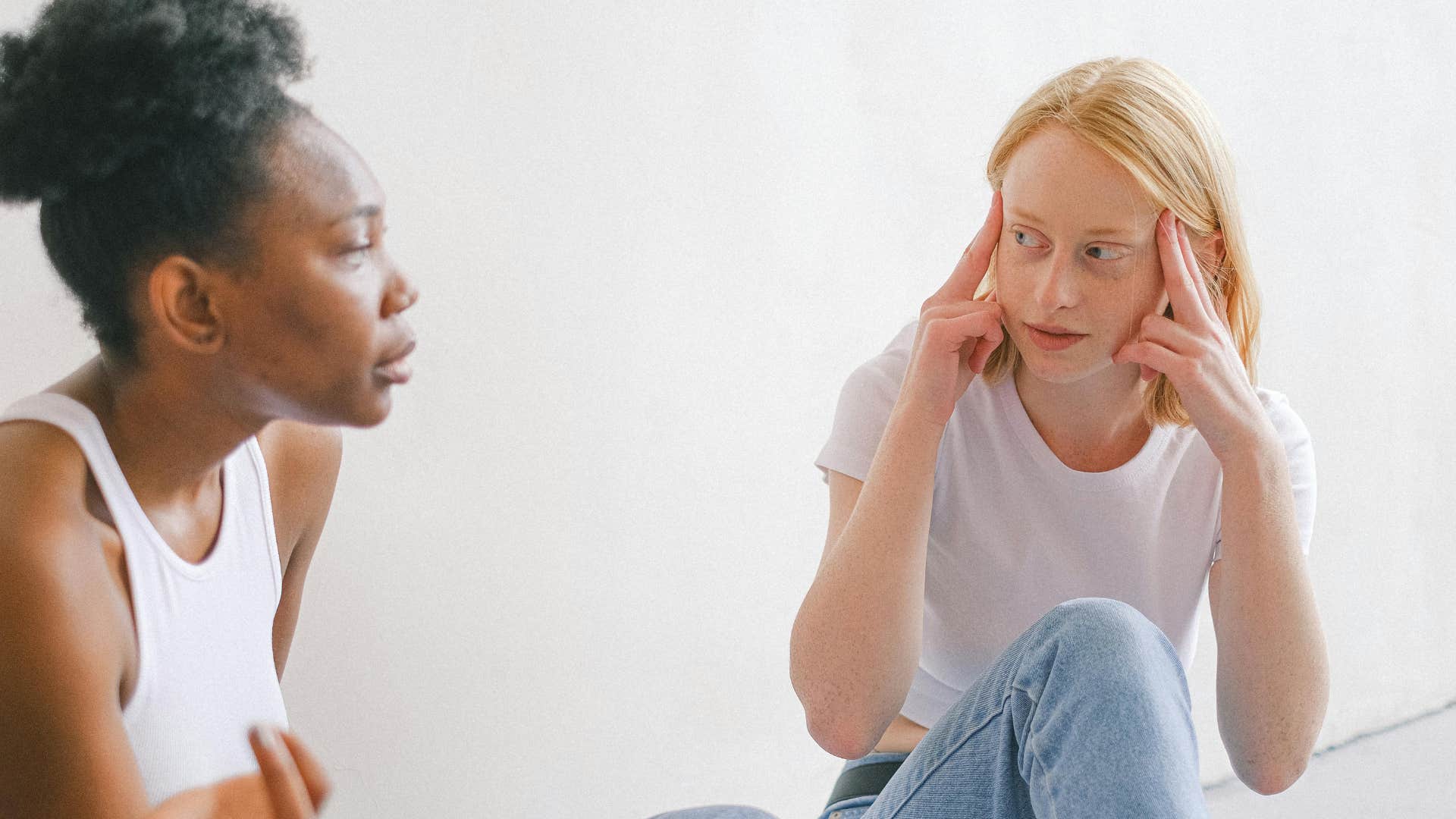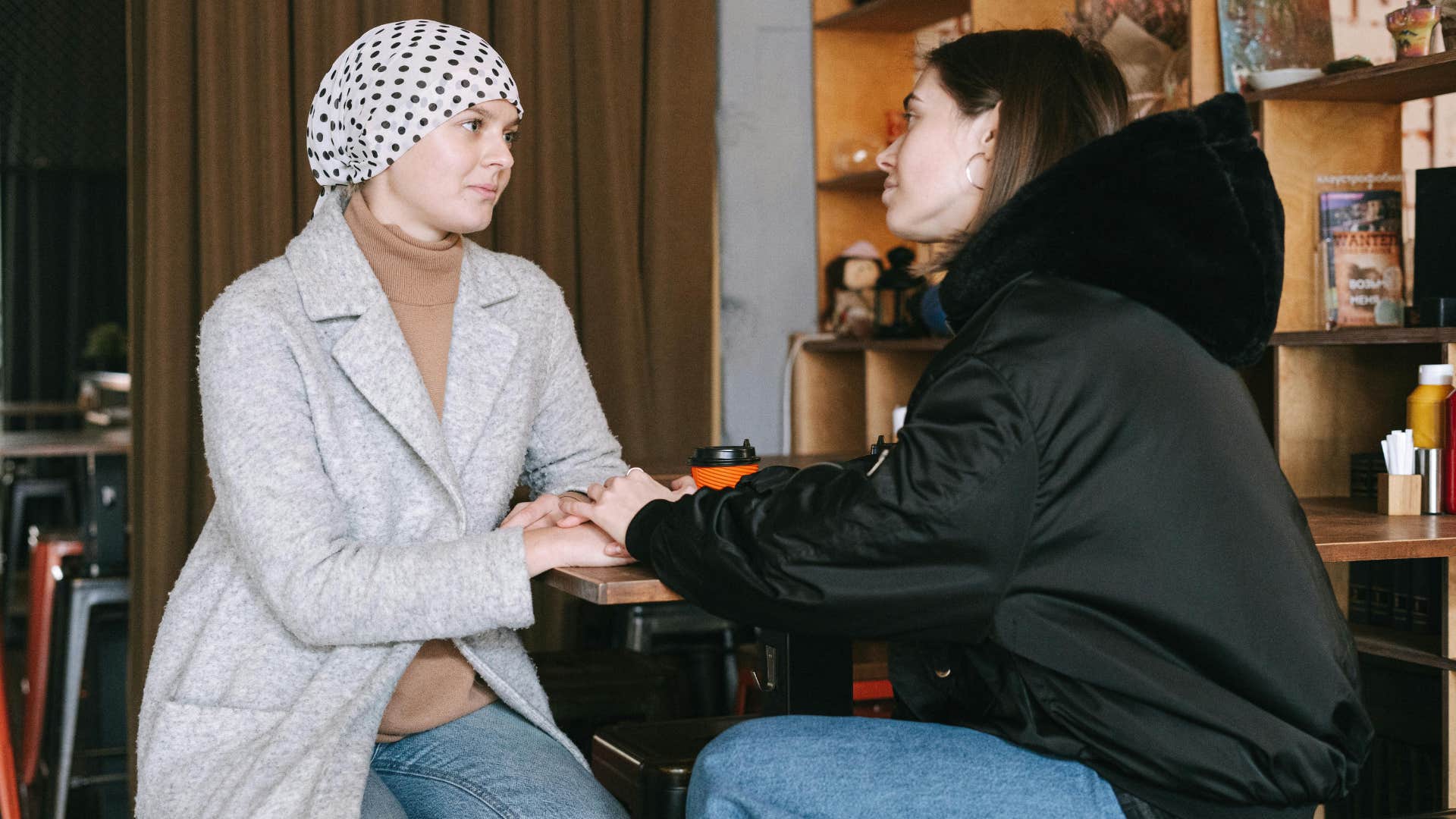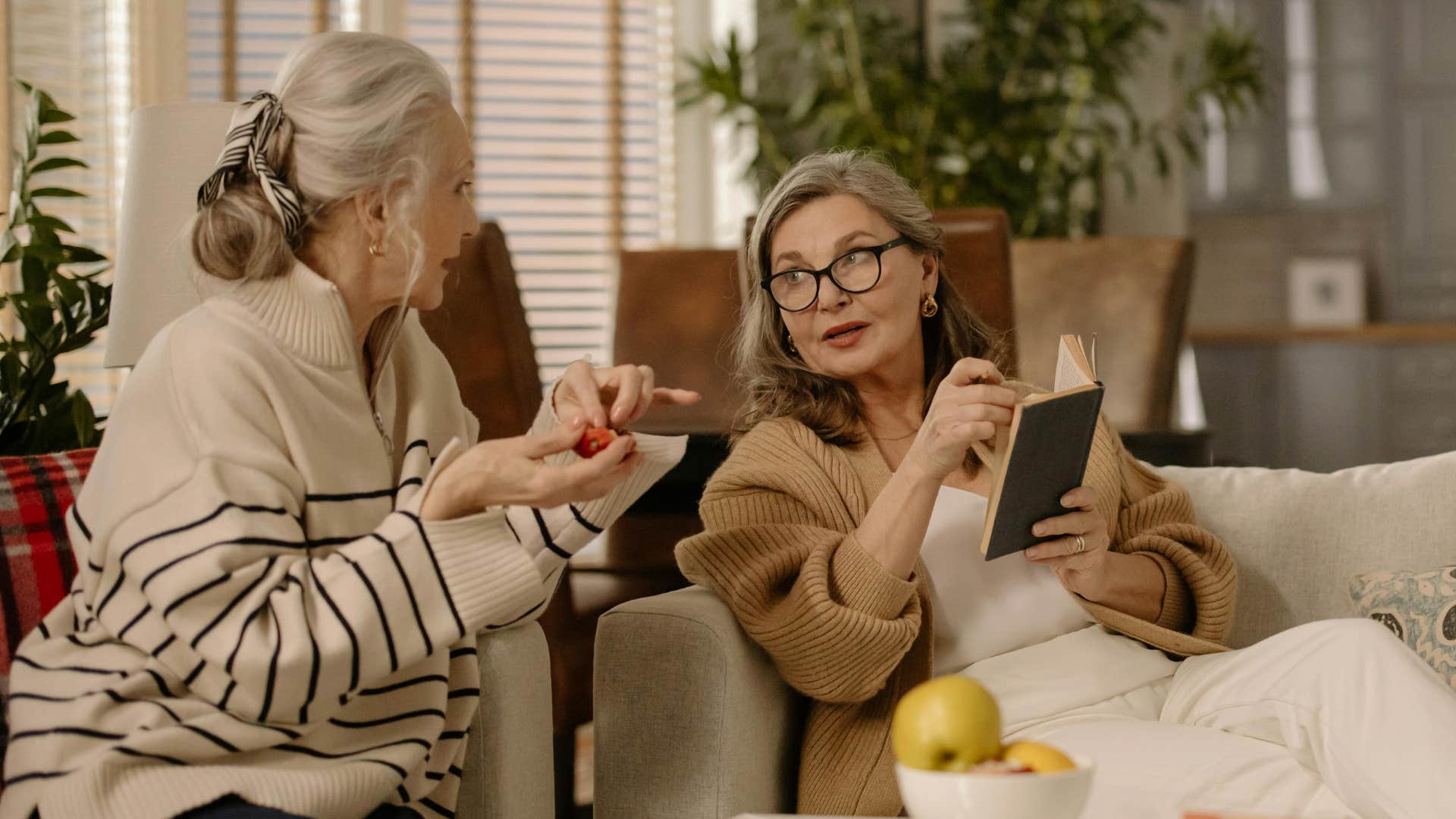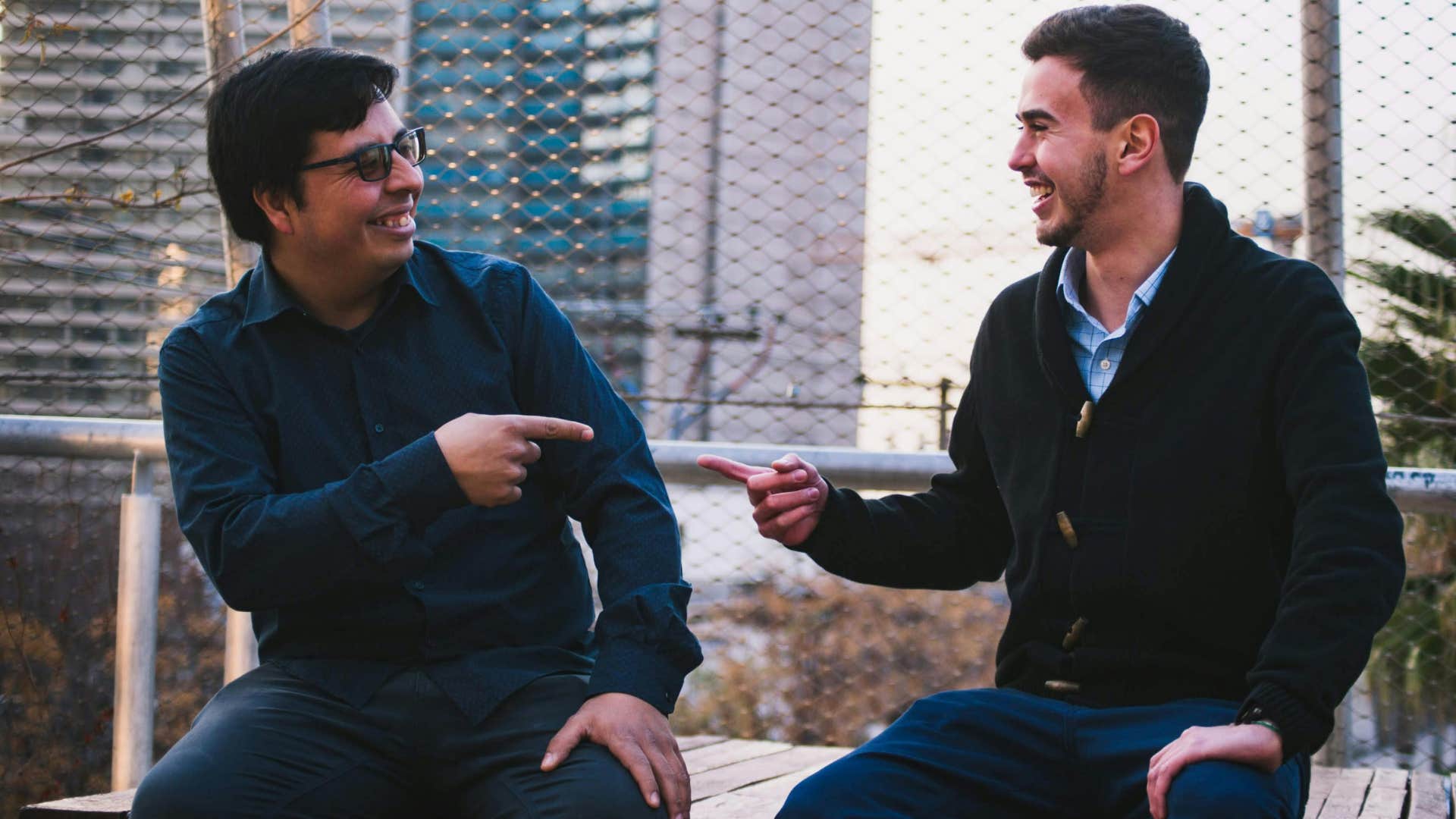People Who Become The 'Therapist' Of Their Friend Group Usually Have These 11 Rare Traits
These friends give you solid advice, grounded in emotional intelligence and clear statements.
 LanaVal / Shutterstock
LanaVal / Shutterstock When you have a friend you go to whenever you need help going through a situation or want to hear a solid pep talk before a first date, you will more than likely go to the friend who's been designated as the 'therapist' in the friend group. This type of friend wasn't given this unofficial role for no reason. They look out for their friends and want the best for them, which is why they're always trying to persuade you to leave the toxic person you've been seeing and give the nice guy a chance.
The 'therapist' in the group has had their fair share of interactions, which have equipped them with the best advice and stories to offer for almost every situation. They stay grounded in their statements and are usually the ones who know how something plays out but won't tell you until you've learned a lesson for yourself.
People who become the 'therapist' of their friend group usually have these 11 rare traits
1. They listen without interrupting
 KATRIN BOLOVTSOVA | Pexels
KATRIN BOLOVTSOVA | Pexels
You know you have a true friend when you can get through the story you're telling them without them interrupting, even though you interrupted yourself three times and were all over the place. You know that that friend is genuinely there to listen to you and what you have to say, which is a trait that many friend 'therapists' have.
When someone is actively listening and letting the other person know they've been heard, it fosters a safe space they can return to when they feel no one else cares about what they have to say. When a friend truly cares about your welfare, it's more common for them to want to engage in high-quality listening.
2. They remember the small details
 Helena Lopes | Pexels
Helena Lopes | Pexels
While some people might forget or not even care about the small details that are said after you unpack a first date with a friend or your ranting about a current relationship, a friend who is viewed as a 'therapist' will never let those little details fall through the cracks. They will bring these details up when it's relevant, and you might've even forgotten you said this yourself, helping you make a clearer decision about the situation.
When this type of friend remembers the small things you tell them, it shows they truly care and are really listening, even when you're having a 30-minute rant or when you say something under your breath without thinking. One study found that when people recall a conversation, they enhance its quality, making the other person feel seen and valued.
3. They can read the room instantly
 Pavel Danilyuk | Pexels
Pavel Danilyuk | Pexels
The 'therapist' of the friend group not only knows what to say, but also when it's the right time to say it, by reading the room and the energy. When they sense that someone might start crying, they hold back the harsh but true advice and offer gentle back pats and reassuring words. Being the person your friends go to is all about knowing what they need to hear and when they need to hear it.
People who can adjust their behavior to match what a situation demands are viewed positively by others in the room. It's about identifying a person's different personality traits and flexibly applying them depending on who they're with.
4. They ask questions that make you think deeper
 Katya Wolf | Pexels
Katya Wolf | Pexels
Some friends might agree with whatever you're saying in an attempt to make you feel good about your decisions. However, when you talk to the 'therapist' of the friend group, they will ask you questions that will make you think deeply about a situation and what you really want as the outcome.
When you're faced with the question, "What do you really want out of this?" it helps bring clarity to the type of actions you need to take to grow as a person and get what you deserve. This type of friend isn't just there for you, but they want to see you thrive.
5. They can stay calm even when you're spiraling
 Anna Shvets | Pexels
Anna Shvets | Pexels
This is a true therapist trait, so when you encounter a friend who can ground you when you're freaking out, it is a rare character trait. Oftentimes, friends start to freak out when another starts to do so, but when someone is emotionally grounded and knows that staying calm is the best option, they will bring a sense of relief to the other people.
It has been proven that friends support our well-being, and having a friend who not only does that but is willing to talk you through any sort of breakdown is a real trooper.
6. They validate feelings rather than dismiss them
 Mental Health America (MHA) | Pexels
Mental Health America (MHA) | Pexels
A friend who is looking out for you will validate your feelings, whether they're good or bad, instead of choosing to dismiss them. All feelings are valid, and it's important to be able to get through them and understand why someone feels those emotions, and the person who knows this better than anyone else is the friend who has been designated as the group's therapist.
Working through any emotion is way better than just dismissing it, because it will more than likely come back if ignored. Research has shown that when someone accepts and validates negative emotions rather than suppresses them, they experience less distress and have better long-term emotional health.
7. They give advice based on patterns
 Anna Tarazevich | Pexels
Anna Tarazevich | Pexels
'Therapist' friends can recognize when someone is slipping back into old, toxic behaviors, and they will act accordingly. They have seen enough to spot behavioral cycles and want to help you break them. They notice all those subtle red flags that you might overlook, such as having the same old arguments but with different people and falling back into self-sabotaging habits.
Because this type of friend can see past the surface story, they offer words and advice that cut straight to the root of the problem. Their guidance feels accurate and trustworthy because they can help you connect the dots you didn't realize were related.
8. They never use your vulnerability against you
 Ivan S | Pexels
Ivan S | Pexels
Like real therapists, confidentiality is their unspoken rule. What is said in these conversations won't be repeated elsewhere, and they won't plan on using it against you, which is what makes them a great friend. You are able to go to this person when searching for relationship advice because you know that they will keep it to themselves. These discrete conversations are often filled with raw emotions and personal details.
This type of friend doesn't exploit your vulnerability. Instead, they honor it, which is why many people feel safe going to them.
9. They don't judge
 Cottonbro Studio | Pexels
Cottonbro Studio | Pexels
This type of friend has been through enough situations to give solid advice, which is why they would be the last person to judge you for yours. They let you finish your story or whatever's on your mind, and you don't feel the need to filter anything because they probably heard or experienced worse.
Instead of sitting and listening to you, waiting for a pause so they can correct or even shame you, they simply allow their friends to keep rambling on since they know that's probably what they need to do right now, just to let it all out.
10. They check in
 Jorge Alvarez Lecaros | Pexels
Jorge Alvarez Lecaros | Pexels
Not only are these types of friends good 'therapists,' but they're going to check up on you outside of those serious and heated conversations. This friend truly cares for you and shows it in ways beyond telling you not to go back with that messy ex, such as asking how your dog is doing after surgery or how the first day of a new job is going.
It's important to remember that they're still your close friends who you go out to the club with, not just someone you visit when you need help deciding whether or not the guy you're seeing is too old, or to help you get over a panic attack over the phone.
11. They carry wisdom beyond their years
 George Pak | Pexels
George Pak | Pexels
The words this type of friend offers you sometimes sound as though they're being told by someone twice their age. Their insight comes from a mix of profound observation and emotional resilience. They have probably been seeing you struggle, but have only offered words of advice when they knew you'd listen rather than get offended.
They're the kind of friend who can make a simple sentence sound like some sort of breakthrough because they're able to see situations from a wider and often calmer perspective. As you walk away from the conversation, you start asking yourself how many past lives they've had.
It's important to listen to the 'therapist' in the friend group, even if they might say something you don't agree with or get angry at. They view everyone's situation from afar with nothing but good intent, and sometimes our own visions can get clouded. While they are great at calming the nerves, they are also great at other things, so it is also important not to view them as the friend you go to with all your problems. Check in on them, too, and invite them out to dinner.
Doreen Albuerne is a writer with a bachelor's degree in journalism, covering relationships, mental health, and lifestyle topics.

